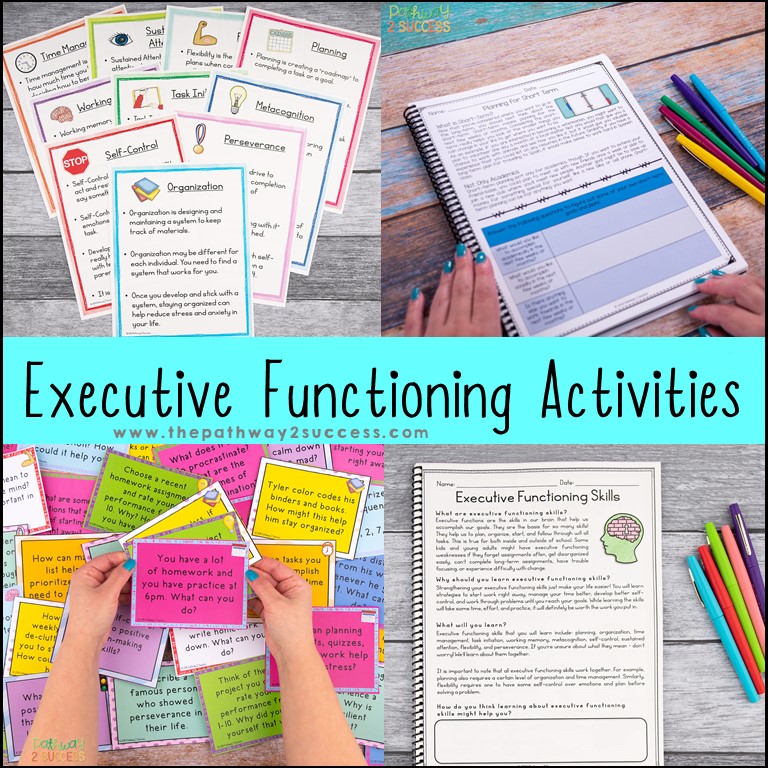
Kids and teens with executive functioning challenges often struggle significantly with homework, projects, and daily assignments. During these activities, students are required to use various skills and executive functioning abilities that may be challenging for them. Just a few of those skills and abilities include planning, organization, prioritizing, time management, self-control, and attention.
The good news is that accommodations can be put in place to help students make the most of their homework and assignments. With proper supports, the goal is that students can complete their work independently, practice the skills they need to, and feel successful.
Below are several executive functioning accommodations to support with assignments, homework, and projects.

Accommodations for Assignments, Homework & Projects
Graphic Organizers. Use graphic organizers to help students plan and organize assignments in meaningful ways before starting.
Chunking Material. Break assignments into smaller sections. For example, if you are assigning a research project, chunking that assignment might include brainstorming, finding sources, taking notes, writing an outline, and coming up with a first draft.
Give Mini-Deadlines. For long-term projects, create mini-deadlines for each section of the work. For a book report, reading of the book might be due one day, while the first draft might be due on another. These mini-deadlines help scaffold planning and time management skills.
Project Outline. Provide project outlines by listing out the steps of an assignment sequentially.
Reduce Homework. Cutting homework (or any assignment) allows students to get all the same practice as other learners, just with fewer examples and problems. This can allow students who struggle through assignments to focus and do their best work, rather than getting burned out with too many problems.
Choose Number of Problems. On an assignment, have students choose any ten problems or questions to complete. This accommodation integrates choice, encouraging motivation. In addition, it helps students do their best work on 10 problems. Alternatively, the teacher can choose the 10 most important problems if that works best.
Provide Exemplar or Model Work. Help students develop a vision of what they should be doing by providing exemplar or model work. For example, show a completed lab report or a finished 5 paragraph essay.
Rubrics. Use rubrics on projects to help students have a clear understanding of work expectations. Remember to review and discuss the rubric with students ahead of time.
Allow Extra Time. Provided extended time for assignments, homework, and projects, as needed.
Provide Checklist. Use a daily checklist with homework assignments to help students know exactly what they need to accomplish.
Check Work in Progress. Provide an extra check-in during work sessions to ensure students are on-task and on-track.
Provide Templates. Create templates for assignments and projects to help students organize their work.
Paper Copies. Today, many assignments are digital, but not all students thrive digitally. Consider providing paper copies as an accommodation to help students do their best.
Guided Study Hall. Provide a guided support period for students to ask questions on homework, practice problems together, get organized, and learn important study strategies necessary for success. It helps to keep guided study halls smaller to allow for more individualized support. Side note: It is true that this is more of a strategy and support than an accommodation, but I felt it was an extremely valuable and worthwhile point to consider.
Teaching Executive Functioning Strategies
Accommodations and supports are important, but it is also critical to make time to teach students about their executive functioning skills and strategies they can use. Use this yearlong set of Executive Functioning Lessons and Activities to teach about how to plan, stay organized, manage your time, and more.

One final thought: Talk to the student and families about the accommodations. So often, they are a wealth of valuable information about the biggest homework struggles. You can even offer homework strategies and supports for families to try.








Leave a Reply